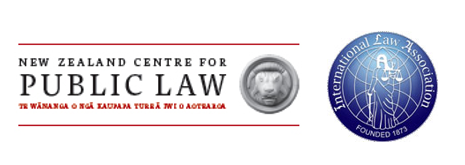International Organisations and the Rule of Law: Perils and Promise
...

International Organisations and the Rule of Law: Perils and Promise
Keynote speaker and commentator:
Professor José E. Alvarez, Herbert and Rose Rubin Professor of International Law
New York University School of Law
International organisations have represented some of humanity’s highest hopes for a more just and peaceful world order. In recent years, however, they have also been beset by serious problems and criticisms.
Internationalists once believed that apolitical, technical international agencies would bring about ‘peace by pieces’, but some organisations such as the World Bank and IMF now face the contrary charge of advancing a particular brand of neoliberal economics and in the process undermining public goods and political legitimacy in their member states.
Observers have noted the irony that the United Nations promulgates a “rule of law” paradigm to its member states, while it is not at all clear that the organisation itself meets the requirements of that ideal. The Security Council is regarded alternately as a tool of ‘hegemonic international law’ and lamentably ineffectual where the interests of its permanent members are directly or indirectly concerned. And whereas the international community once saw the blue helmets of UN peacekeepers as symbols of international peace and security, that hopeful promise has been undercut by the tragedies in Rwanda and Srebrenica, allegations of sexual misconduct and, more recently, the catastrophic cholera outbreak in Haiti.
These problems raise a series of important theoretical and practical policy questions that demand attention from international lawyers. On the one hand, classical international organisations law, such as the doctrine of implied powers, has legitimised the continuous ‘mission creep’ of organisations well beyond what their founders originally intended, while failing to develop an adequate and enforceable doctrine of ultra vires.
On the other hand, international organisations’ immunities are interpreted in an exceedingly broad, functionalist manner, making their officials and experts, as well as the organisations themselves, effectively unaccountable for a wide range of civil and criminal wrongs.
Efforts to extend the international law of responsibility to international organisations have been roundly criticised on both doctrinal and practical grounds, and are unlikely to provide recourse to individuals and groups most negatively impacted by IO activities. The internal accountability mechanisms of international organisations, such as the World Bank’s Inspection Panel, may not address the root of the problems.
This symposium took a fresh look at the resources that international law possesses to ensure that international organisations are held accountable for their errors and excesses, while remaining relevant and effective in the face of ever growing global challenges. How can international law develop in a way that preserves and enhances the dynamic possibilities of international organisations and their ability to contribute to the development of international law while making sure that the organisations themselves comply with the rule of law? Can international law offer solutions, or is it part of the problem?
The symposium organisers welcomed papers that present original legal or empirical research; theoretical reflections; case studies from practice; and critical and historical perspectives.
The symposium was held in a roundtable format, focused on the discussion of draft papers.
Organisers
Campbell McLachlan and Guy Fiti Sinclair, Victoria University of Wellington Faculty of Law
